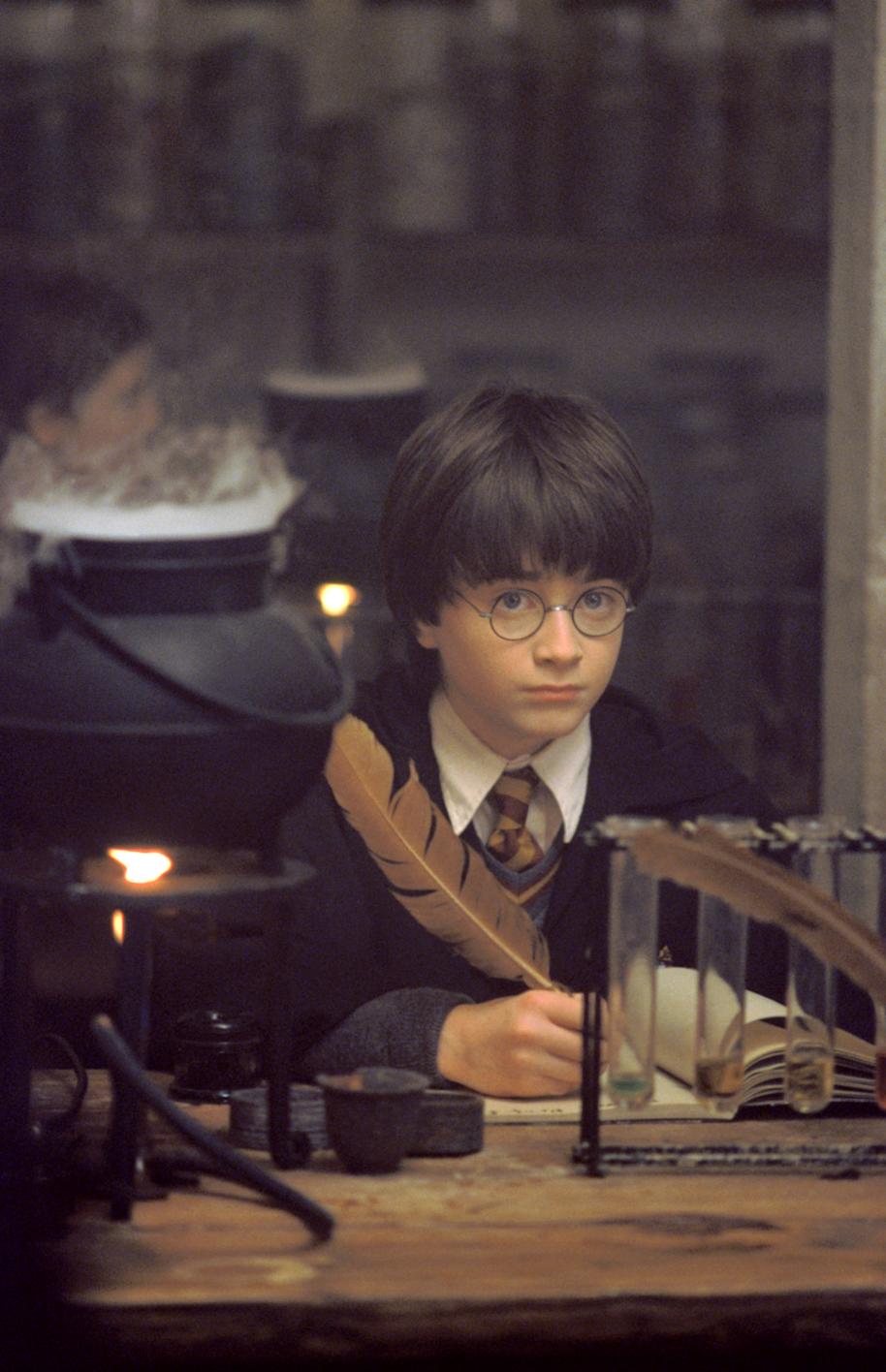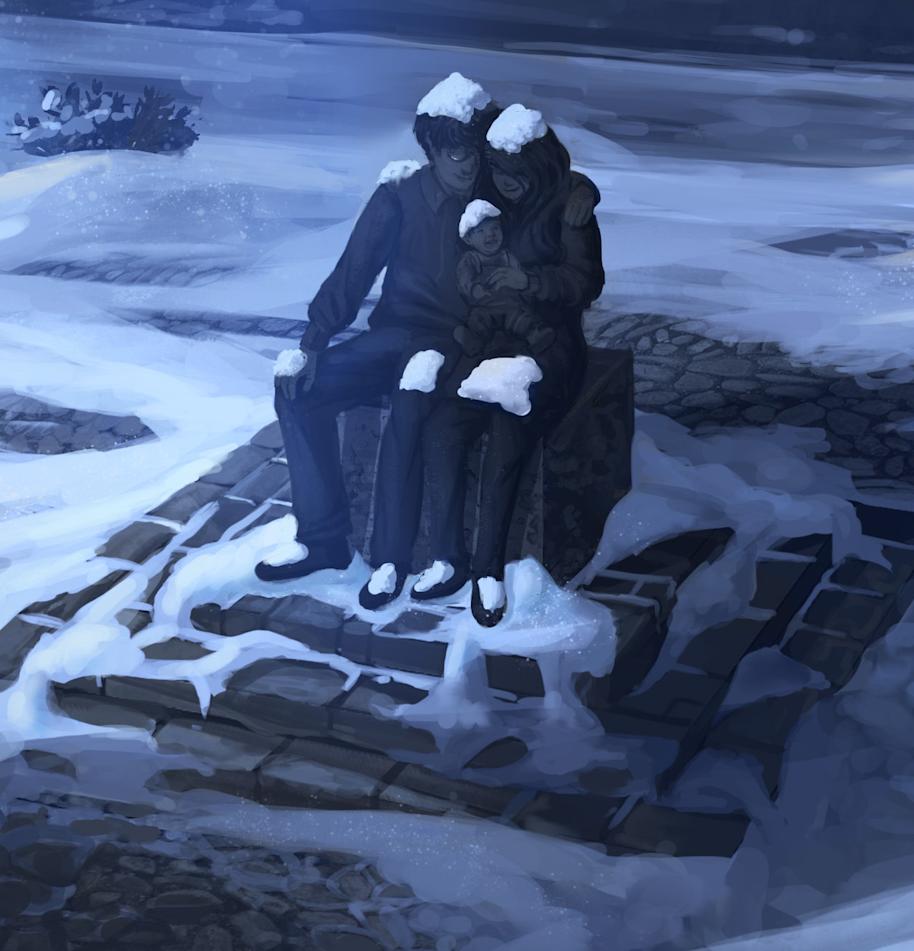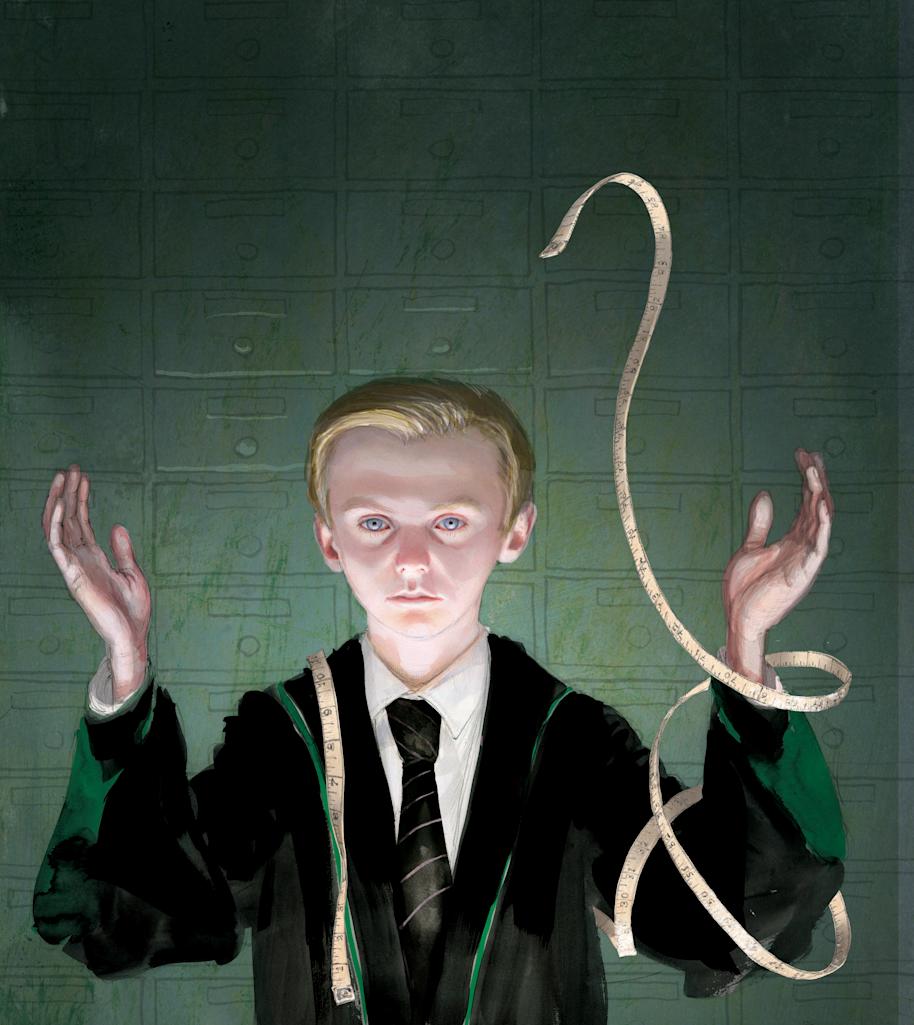
It’s important to remain humble
Dumbledore left Harry with the Dursleys because he didn’t want him growing up famous. ‘It would be enough to turn any boy’s head,’ he told McGonagall.
Thanks to Trelawney’s prophecy, Dumbledore already suspected what was in store for Harry. And yet placing Harry with the Dursleys was important because it protected him not only from Voldemort’s followers, but also from the prying eyes of more well-meaning witches and wizards.
Living with the Dursleys gave Harry a whole new set of problems, but it certainly kept him humble. When Harry learnt about his past he felt unequal to it: embarrassed by strangers’ responses, modest about his part in Voldemort’s downfall, worried about his lack of knowledge.
He might not have been aware of it, but this very human vulnerability would actually help Harry. When he arrived at Hogwarts, Harry was ready to learn. Unlike Voldemort he responded to kindness, not power. He wanted friends, not followers; he looked for help, not to intimidate.
Because Dumbledore was right, of course. He couldn’t have known how starved of love and affection Harry would be, but he did know that a Harry who’d grown up famous would be far less equipped to deal with Voldemort, whose arrogance was key to his defeat. Harry, while he grew in confidence, remembered his past in a way that Voldemort did not. This made him human, and gave him tools Voldemort would never understand.

Love conquers hate
The most significant of Harry’s advantages was love.
Harry survived Voldemort’s curse because of his mother’s instinct to protect him. Love literally saved Harry’s life, and its power remained as the magic associated with his mother’s sacrifice took root in the home of his only surviving relative. It’s a pity this protection lived only in Aunt Petunia’s blood but still, it kept Harry safe, even if she didn’t know it.
Voldemort couldn’t comprehend why love should be so important. Even Harry couldn’t quite appreciate its full significance – in Harry Potter and the Half-Blood Prince he barely stopped himself saying ‘Big deal!’ when Dumbledore told him, again, that love was the one power Harry had over Voldemort. But eventually we all learnt just how much Voldemort lost because of his inability to understand love.

Friendship and loyalty beats wealth and status
The first time Harry met Draco Malfoy he knew they wouldn’t be friends. Malfoy’s reaction to Harry before he knew his name was disinterested and sneering, yet when they met again he extended the hand of friendship. Harry, unimpressed by Malfoy’s dismissal of Ron, wouldn’t take it. He didn’t need to be an expert in the wizarding world to see through Malfoy.
Whether he really wanted to be Harry’s friend is up for debate, but either way Malfoy didn’t stand a chance against Ron, with his messy family and uncomplicated warmth. Money and power weren’t important to Harry, who grew up without much of either, subsequently discovered a bit of both, and still gravitated towards the things that he was really lacking – friendship, affection and loyalty. This was what Harry regarded as important and, like love, it was these things that helped him defeat Voldemort. After all, you couldn’t pay someone to come Horcrux hunting with you, and only a friend would do that for free.

Standing up for yourself is tough, but rewarding
It was a while before we learnt that Neville Longbottom could have been the Chosen One, but as a counterpart to Harry in Philosopher’s Stone he was quite interesting. He’d grown up in the wizarding world but was more worried than anyone about starting Hogwarts and his anxieties got the better of him. He was intimidated by Malfoy and too nervous to listen to flying instructor Madam Hooch, resulting in a bad start and a broken wrist.
He was brave, though – the Sorting Hat knew it from the start. With the encouragement of Ron and Harry, Neville started to stand up for himself. Dumbledore knew it, too, awarding Neville ten points for facing up to Harry, Ron and Hermione, and thus securing Gryffindor the House Cup.
Neville showed us that being scared doesn’t mean you can’t be brave – on the contrary, standing up when you’re scared is what makes you brave. Neville’s was a quiet, quivering kind of courage, but when Dumbledore recognised him at the end-of-year feast, it showed that bravery comes in many forms.

Don’t be afraid to ask for help
Whether it was nervously asking Mrs Weasley for help at King’s Cross or recovering the Philosopher’s Stone with the aid of Ron and Hermione, Harry realised that he wasn’t going to get very far in the wizarding world without help.
It wasn’t just Harry, either. In the Forbidden Forest centaur Firenze acknowledged that Voldemort would only be defeated by communities coming together.
This became more significant as Harry’s battle with Voldemort intensified. From the Order of the Phoenix to Dumbledore’s Army to the Battle of Hogwarts, Harry came to realise he couldn’t do everything on his own. And here, too, he showed an awareness that Voldemort never quite grasped.

Stay away from three-headed dogs
Just an idea.
To celebrate the 20th anniversary of Harry Potter and the Philosopher’s Stone, Pottermore will explore themes, moments, characters and much more from the very first Harry Potter story. Come back on Thursday when we look at how the iconic Philosopher's Stone locations defined the characters.



